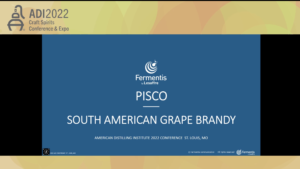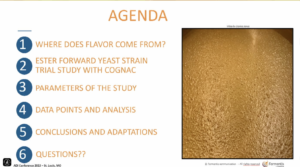Post navigation
Sugar Cane Molasses are by-products of the sugar refining industry : these are complex organic waste materials obtained from raw sugar during the refining process. Typical composition of molasses consists of sugars (sucrose, glucose, fructose) and other organic and inorganic matter (ash, minerals, organic acids, etc.). The non-sugar fraction is more or less important and/or toxic. Process challenges and global differences in terroir reflect the vast diversities in the raw materials used in cane molasses spirits. In examining the differentiation of cane molasses produced from global sugar sources, analysis were carried out to better understand the variable molasses compositions and trial studies were performed to investigate how the different samples relate to yeast fermentation performances. Fermentations were conducted to learn how differing yeast strains were affected by the nutritional variations of the molasses. A large number of selected yeast strains from the distilling industry were evaluated to ferment the different molasses samples, rendering an array of notable and robust assertions. Then by using statistical analysis of all the data collected from the design of experiments, it had be determined which sources of molasses, as well as yeast strain, can help distillers to adapt their fermentations with the best yield and productivity when they produce spirits from sugar cane molasses.




